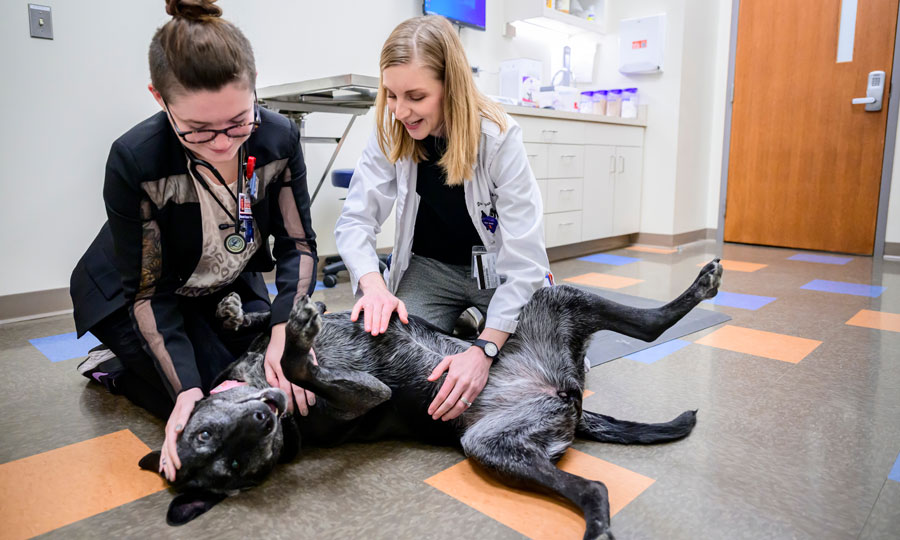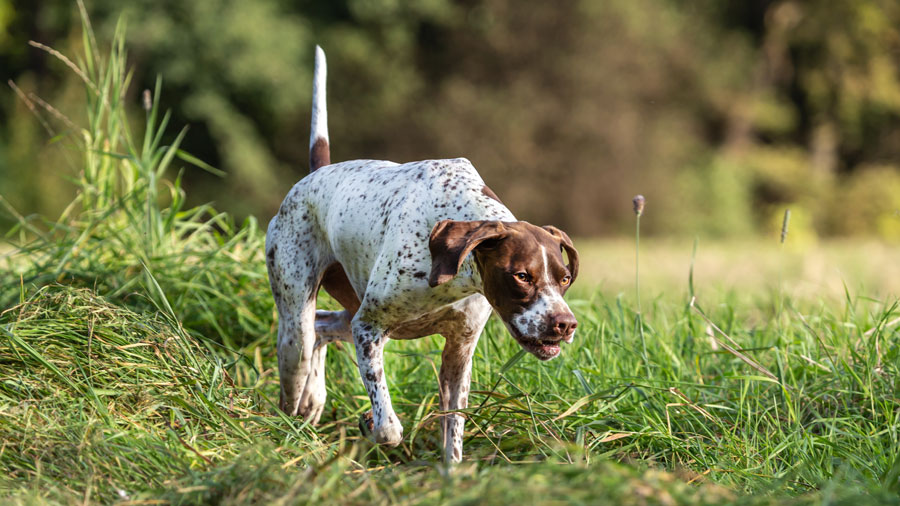February is National Pet Dental Health Month, when many veterinary clinics focus on oral health for dogs and cats.
But what about non-traditional pet species? Turns out, they need regular dental care too! Dr. Judilee Marrow, a specialist in zoological medicine at the University of Illinois Veterinary Teaching Hospital in Urbana, explains the unique dental needs of pet ferrets.
“Ferrets should see a veterinarian every year to evaluate their overall health, including their dental health,” says Dr. Marrow.
What Could Go Wrong?

Photo courtesy of Dr. Krista Keller.
Dental concerns that could arise include gingivitis, oral ulcers or lesions, and tooth wear or fractures. Ferrets may develop oral cancer or plugged salivary glands, too, so annual oral examinations make it possible to address these issues early on, before they become bigger problems. Left unchecked, infections in the mouth can lead to chronic inflammation in the body, which increases the risk that the ferret could develop cardiac and kidney disease.
“The most common dental issues seen in ferrets include tartar and gingivitis that progresses with age, fractured canine teeth, excessive wear of the molar teeth—especially in older ferrets—and oral trauma from chewing on inappropriate objects in their homes,” says Dr. Marrow.
How Are Dental Problems in Ferrets Treated?
Veterinarians will look at your ferret’s teeth and mouth during the annual examination. If any concerns arise, the veterinarian may sedate your ferret in order to conduct a more thorough oral examination to gauge how extensive the problem is.

During a routine dental cleaning, your ferret will be put under anesthesia. Dental tartar is removed, and the teeth are polished, just like a cleaning for a cat, dog, or person. While the patient is anesthetized, the health of the gums and integrity of the bone is checked with a dental probe.
“If other concerns are noted, the veterinarian may take dental radiographs or an oral biopsy to gather further information and decide on the best treatment plan,” explains Dr. Marrow.
How Can Dental Problems Be Prevented?
The best way to maintain your ferret’s oral health at home is to brush their teeth regularly. Dr. Marrow recommends starting the practice while your ferret is young.
Currently there are not many commercial options for ferret toothbrushes and toothpaste, as there are for dogs and cats. However, Dr. Marrow says you can use the enzymatic toothpaste made for dogs and cats with your ferret. She recommends using cotton swabs for the “brush,” since the toothbrushes marketed for dogs are too large for a ferret’s mouth.
Dr. Marrow warns against using abrasive dental treats, which can cause excessive tooth wear. “Ferrets’ teeth are designed to eat whole prey in the wild,” she says.
Since their teeth are not designed for chewing object, even hard kibble may present a problem.
It is also important to monitor your ferret at home to make sure they are not chewing on cage bars or chewing excessively on toys. This behavior can contribute to tooth fractures and excessive wear.
“Because of ferrets’ soft tooth structure and propensity to chew up toys and then swallow the bits, leading to gastrointestinal obstructions, veterinarians encourage ferret owners to provide toys that do not promote chewing behaviors,” says Dr. Marrow. “Hammocks, tunnels, and ball pits are all great examples of safe toys.”
Whether your ferret is new to the house or has been a longstanding member of your family, dental care is an important way to promote a better quality of life for these furry companions.
By Alaina Lamp
Featured photo by poppy, CC BY-NC-ND 2.0




